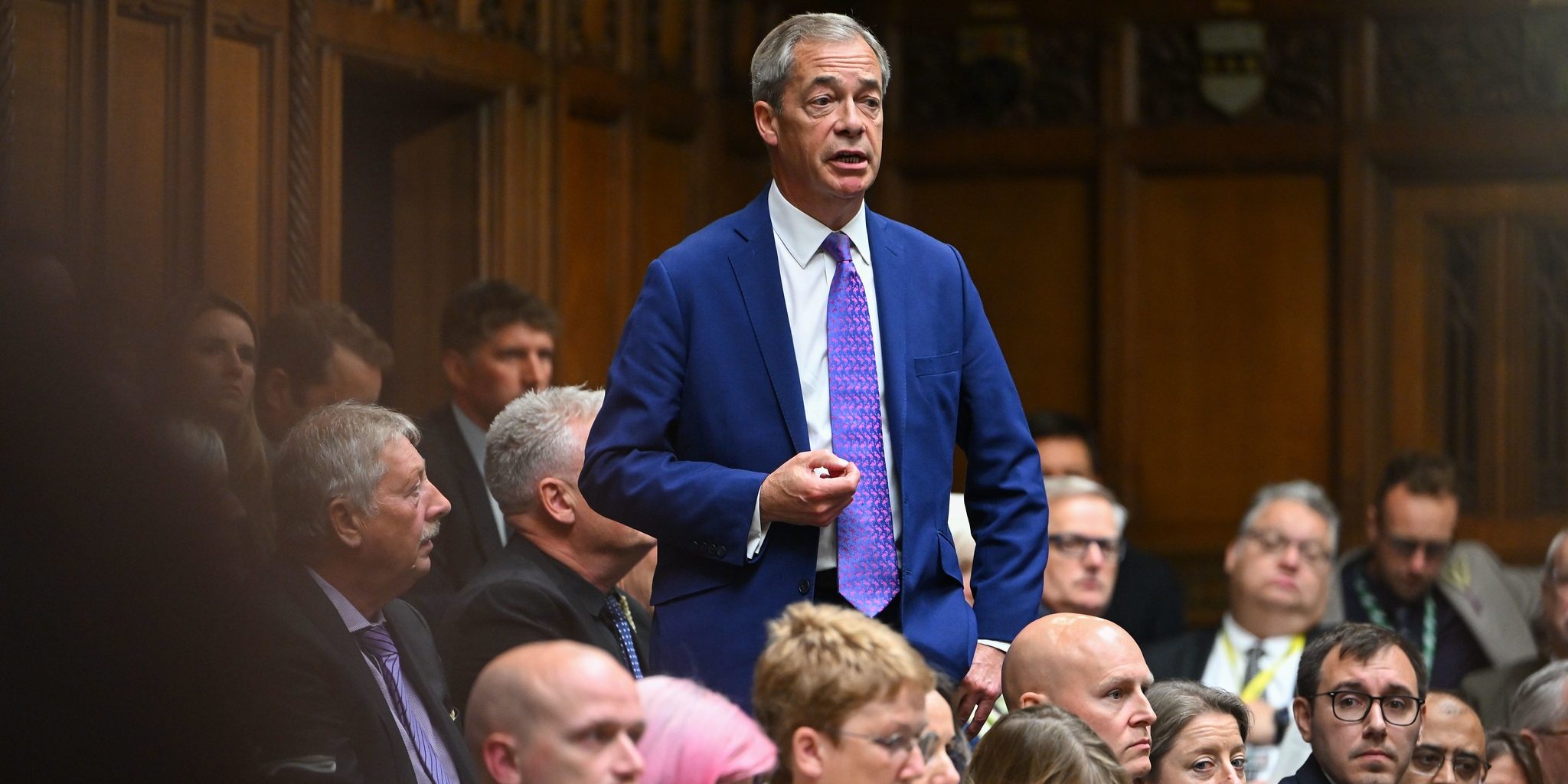Might is right: The success of Reform UK and the rise of nationalism in Britain
On 13 September, a group of almost 150,000 gathered in Central London for the ‘Unite the Kingdom’ rally, led by nationalist activist and commentator Tommy Robinson.
This was a flashpoint spectacle in a year marked by bitter division, sparked by the UK’s immigration policy. Large-scale demonstrations have taken place in ‘immigrant hotels’ across the nation, following the Labour government’s ongoing struggles to halt small boat crossings into the country since taking office in July 2024.
In this context, the emergent Reform UK Party has seen marked success, gaining notable support from Britons who feel that the country lacks sufficiently tight controls on the flow of immigrants and asylum-seekers.
In the space of just one year, Reform UK has executed a remarkable rise. A recent YouGov poll reported that, if a general election were called today, Reform would receive the most votes.
Reform has also seen success by attracting large numbers of former Conservative MPs and adopting them into the party
A pervasive partisan dealignment has taken place across the country in a short period of time.
Reform has also seen success by attracting large numbers of former Conservative MPs and adopting them into the party, with notable defectors including former ministers Danny Kruger, Nadine Dorries, and Sir Jake Berry.
At least nine former or sitting Conservative MPs have defected to the party so far. This marks the largest number of defections to a single source in the party’s history. With all this said, the question becomes not how the change happened, but why it happened.
It took Nigel Farage eight attempts to get a seat in Parliament. He has been trying to do so for over 30 years, after first running in 1994. With his seat in Clacton, he promised to be an agent of disruption and an anti-establishment figure. This echoes the position of US President Donald Trump, whose 2024 campaign pledge centred on a swift and definitive overhaul of government institutions.
Reform’s greatest trick has been to replace stringent policy proposals with slogans that exploit fears sweeping the nation
Farage’s persistence and ability to manipulate the UK political system, now with greater name recognition, are central contributors to the success of his party and political goals. This is in no small part due to the party’s appeal to young men, who will bring a new dimension to the electorate at the next general election. One of the trademark tools used by Reform has been the development of far more sophisticated social media campaigns that target this core demographic. These have effectively convinced young men of the party’s authenticity and forged relational ties with Farage’s message. The use of social media is not a unique development in politics. It reflects a broader intuition about how to tailor content that is favoured, promoted and pushed on these platforms.
At the last general election, Reform secured three times as much social media engagement as the Labour Party. Farage has capitalised in a big way, capturing and harnessing the instinctual emotions of the public.
Beyond this, Reform has utilised worries about the dangers of immigration and the loss of a sense of ‘British’ identity as a formula for capturing political momentum. Reform’s greatest trick has been to replace stringent policy proposals with slogans that exploit fears sweeping the nation.
Zero tolerance policing. Stop and searches. Fast-track arrests.
This language of a ‘safer Britain’ is a thin veil for a rightward shift that seems impossible to cork.
Dawn has broken on a country that places nationhood and self-interest over common goals and shared visions of prosperity. Farage’s rise serves as a symptom of a Britain that has rejected formal politics for a populist race to Number 10. Conserving rather than building. Denying liberties rather than creating opportunities for consensus. These are the strides that have put Reform ahead.

Comments